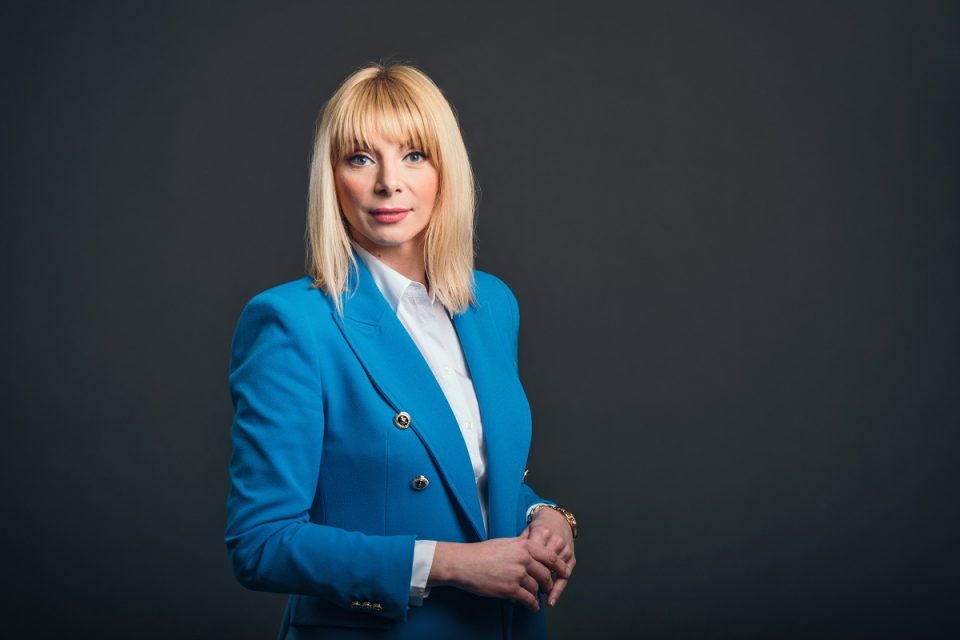Countries worldwide are going through digital transformation, and the way many companies and organizations do their business has significantly changed. With Irena Merkaš, Communications Manager for the CEE Multi-Country subsidiary in Microsoft, we talked about differences and the countries’ position in the region regarding digital transformation. She also shared observations from Microsoft’s research about employees, their new views on responsibilities and work in companies, and the role technology has in building a greener, more humane, and more efficient world.
You are responsible for Microsoft communication in 25 countries from Central and Eastern Europe, which are undergoing rapid digital transformation. What do these countries have in common, and what are their main differences?
The role of a Communication Manager overseeing communications in a variety of markets – from the Adriatic, Balkans, Hungary, Baltics, Ukraine and Kazakhstan, brings lots of responsibilities but many more opportunities at the same time. The region is exceptionally interesting and dynamic. I am impressed by many successful businesses and agile startups, great partners and customers, and forward-looking governments eager to accelerate the digital transformation of society. Considering the multiple languages, distinctive cultures, and different levels of business maturity, the level of digital transformation in markets varies. On the other hand, tech talent, entrepreneurial spirit, and tenacity are common in the region. This is reflected particularly well in the Microsoft research called Digital Futures Index. For example, it has shown that Slovenia is advanced when it comes to digitization in education, Croatia is above the CEE average in digital skills, Estonia is among the leading EU countries in e-Governance, Serbia is high in the share of women in IT and IT export, while Hungary has a good development trend in the digitalization of public services, especially in the healthcare administration system. The key to speeding up the journey to a greener, wealthier, more innovative future is to learn from each other.
Microsoft has a survey called Work Trend Index that analyzes new work trends. What are the main new findings?
Today, the labor market is very fluid. The economists previously warned of a Great Resignation, but instead of quitting the workforce entirely, employees have simply been finding better jobs. Today, we are talking about the Great Reshuffle, where flexibility and well-being are no longer negotiable, especially for Gen Z and Millennials. Additionally, our WTI research showed that 73% of employees need a better reason to go to the office than just company expectations, and 76% of employees say they’d stay longer at a company if they could benefit from learning. When talking about the region, we see great strides towards more flexible work in the last few years. The reality is that flexible work (hybrid, remote, or in the office) is the new way we work and is here to stay. Now, it is the business leaders who need to rethink entire working models, cultures, and company values. At the same time, it is great to see different solutions being created to help leaders embrace changes. For example, Microsoft created Microsoft Viva, the first employee experience platform that brings together communication, communities, knowledge, learning, goals, and insights right in the flow of Teams.
Nowadays, what is particularly challenging about working in a corporation?
External context, slowing global economy, rising inflation, and geopolitical uncertainty are shaping the way we live, work, and learn more than ever. From that perspective, challenges in working in a corporation do not differ much when compared to other types of organizations. On the other hand, what I love is working with diverse individuals, sharing one corporate culture, and rowing in the same direction. Opportunities to learn and grow professionally are tremendous. Additionally, we often read and hear about company purposes. Here, at Microsoft, this goes one step further, as you can volunteer on the project with the same purpose as your personal one. For me, this is working on projects that make the world more accessible through technology for people with disabilities. Also, many corporations are now giving employees the freedom to determine for themselves how they’ll balance their unique work and life responsibilities – work-life integration has become a new form of “balance” in many corporations.
Organizations of all shapes and sizes must change instilled habits in order to secure our future and move more quickly toward a global net-carbon economy. What solutions does Microsoft offer companies to come closer to this goal?
In Europe, the proposed sustainability reporting regulation is expected to impact nearly 50 thousand entities – more than four times as many entities as are reporting today. EU subsidiaries of companies may also be required to provide environmental, social, and governance (ESG) disclosures. Also, there is growing demand from investors asking companies to disclose sustainability metrics, associated risks, and mitigation strategies. What does this mean in practice? For example, the Latvian air company managed crew shifts via mobile devices, seamless payroll integration, and quick paperless post-flight report submissions. The company eliminated the need to print 1,000 print report pages a month and reduced the time for data input from two days to 15 minutes. The City of Zagreb created a Microsoft Azure-based system for enrolling children in kindergartens, which also manages administrative functions, saving 30 percent in infrastructure costs and 70 percent in infrastructure procurement and installation time compared to on-premises infrastructure. To conclude, the ability of organizations to respond to sustainability demands and opportunities in the next few years will determine their future success. Technology can help everyone, everywhere, build a more sustainable future.





